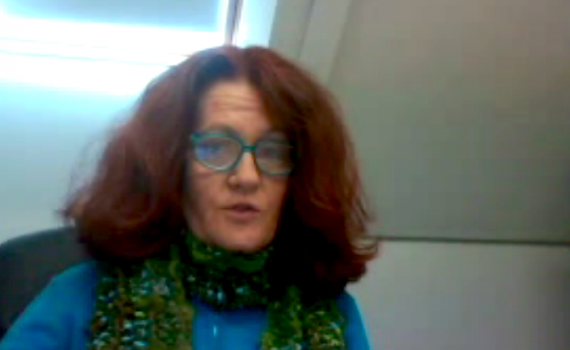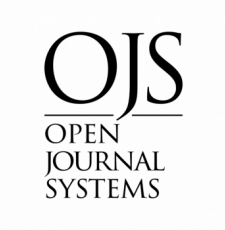
EIFL organized and hosted (networkict4edu.org) the Network for ICT in Education webinar on Open Educational Resources (OERs) – textbooks and other academic materials that are published online for everyone to use, adapt and share freely targeted towards educators, students and librarians.
55 participants from 23 countries (Armenia, Australia, Bangladesh, Bulgaria, Croatia, Germany, Ghana, Ireland, Italy, Kenya, Latvia, Lithuania, Macedonia, Moldova, Nepal, Nigeria, Rwanda, Serbia, Slovenia, Tanzania, Uganda, UK and Zimbabwe) attended the webinar.
The webinar consisted of three parts:
- Introduction to OERs and how academic librarians could be involved [download slides here];
- A step-by-step guide on setting up an institutional OER programme and synergies in open access policies and OER developments [download slides, pptx].;
- A hands on training on how to find OERs and how to use them in teaching and learning [download slides, pptx].
The webinar recording is available here.
1. Introduction to OERs
Isabelle Turmaine (Director, Information Centre and Communication Services, International Association of Universities) began the webinar with an introduction to OERs. She explain the concept, told a brief history of the movement, explained Creative Commons licenses, gave reasons for taking up OERs and set the scene for other presentations.
Despite their advantages, OERs are not as widespread as expected and MOOCs seem to have taken the lead. Isabelle provided a slide on the role of academic librarians explaining how OERs are linked to the open access movement, and how academic librarians, because of their position at the core of higher education institutions, could be a driving force for OERs.
2. OpenUCT Initiative: OERs from the institutional perspective
Associate Professor Laura Czerniewicz (Director, (openuct.uct.ac.za) OpenUCT Initiative, The Centre for Educational Technology at the University of Cape Town (UCT) spoke about openness at UCT. She has also started with the premises that OERs overlap with open access and elearning, OERs are a part of a broader open movement and institutional context and culture are critical to how OERs and open agenda play out.
2.1. First steps and major focus areas of activities
OER at UCT started seven years ago with (cilt.uct.ac.za/OpeningScholarship) The OpeningScholarship Project that developed position papers and case studies.
With the launch of UCT Knowledge Co-op, students began undertaking research projects for the communities and made them available as OERs. UCT Knowledge Co-op provides a channel for external constituencies to access knowledge, skills, resources and professional expertise within the university and at the same time it provides an opportunity for academics and students to engage with society and address the needs of communities.
OpenUCT Initiative repository involves all kinds of materials: websites, online lectures, handbooks, books as well as entire courses.
Small grants for creating OERs have been provided and student OER projects have been implemented.
OpenUCT Initiative hosted over 40 advocacy, development and training events in 2013 alone.
Policy engagement and technical developments have been major focus areas of activities. A new UCT IP Policy specifically addresses issues relating to the creation of OERs and the licensing processes to be followed. It also expressly states the support for publication of materials under Creative Commons licenses.
2.2. Success stories
Laura shared two success stories about two very popular medical textbooks that have also been translated by volunteers into Portuguese, Spanish and French; and about an OER that was published as an article in open access journals, see the details below.
“A wonderful ongoing success story of open, accessible and online educational resources is Prof Johan Fagan, Head of the Division of Otolaryngology, initiative to develop freely available, high quality reference resources for otolaryngologists.
Prof Fagan is the editor of The Open Access Atlas of Otolaryngology, Head & Neck Operative Surgery and the Open Access Guide to Audiology and Hearing Aids for Otolaryngologists, both available on UCT’s OpenContent site. These two textbooks are available at no cost under a Creative Commons Attribution Non-Commercial License. This open license allows anyone to copy and redistribute the material as well adapt and build on it as long as the authors are acknowledged and the resource isn’t being used for commercial purposes.
To date, across both textbooks, about 70 chapters have been written by international experts free of charge with more chapters currently being worked on. Volunteers have translated some chapters into Portuguese and Spanish. By September 2014 all current chapters will have been translated into French.
And there’s clearly a demand for it. Chapters have been downloaded 260,000 times, currently at a rate of >700 chapters per day; a chapter is downloaded every 2.2 minutes. These hits are coming from not just South Africa but all over the globe, including countries such as the USA, UK and Sweden as well as Nigeria, Kenya and Egypt.
(openuct.uct.ac.za/blog/open-access-medical-textbooks-sharing-knowledge-globally#sthash.2aS94hRB.dpuf) Based on Open access medical textbooks: sharing knowledge globally blog post by Sarah Goodier)
There are also great examples of reuse of OERs, e.g. Matumo Ramafikeng’s OER (lecture notes on the Model of Creative Ability, made available online through UCT's OpenContent inititative) was published in the Journal of Occupational Therapy of Galicia, an open access journal for occupational therapists in the Spanish speaking world. The article broke further new ground; according to the journal's editors, it was the first on the Model of Creative Ability to be published in Spanish-speaking countries (more information about this is here)."
2.3. UCT's Open Access Policy and open education
In 2014 UCT adopted an (uct.ac.za/downloads/uct.ac.za/about/policies/UCTOpenAccessPolicy.pdf) Open Access Policy for taking forward open scholarship and open education as part of the commitment to scholarly communication, e-research and digital content stewardship. The policy has the following provisions:
“The widespread availability of open education resources, open content, open courses etc. from the global north is both an opportunity and a concern as there is an equally urgent need for local teaching and learning resources to be made freely available online.The University encourages Employees and Students to make all forms of works of scholarship available … This includes (but is not limited to) essays, books, conference papers, reports (where permitted by a funder of the research leading to the report), educational resources, presentations, scholarly multi-media material, audio-visual works and digital representations of pictorial and graphical materials.
An Author must deposit an appropriate version of Scholarly Publications into an officially designated Institutional Repository or into an acceptable curatorial system which can be harvested by UCT.
A Student shall either through self-archiving or assisted archiving upload the final corrected version of their thesis or dissertation into the officially designated Institutional Repository prior to graduating.”
And the library will be playing a key-role to support the OpenUCT Initiative.
3. How to find OERs and use them in teaching and learning
Associate Professor Maha Bali, Center for Learning and Teaching, American University in Cairo, gave a hands on training on how to find OERs and how to use them in teaching and learning.
About the Network for ICT in Education
The Network for ICT in Education was established to facilitate a collaborative platform to share knowledge, experience, good practices and resources and currently consists of six organisations – Makerere University in Uganda (a network facilitator), EIFL (Electronic Information for Libraries), (fundacionlapaz.org) Fundacion La Paz in Bolivia, OLE Rwanda, the Open University of Tanzania and the Invention and Technological Ideas Development Organization (ITIDO), Tanzania.
The network is funded by the Swedish Program for ICT in Developing Regions (Spider) which is a resource centre for ICT for Development (ICT4D) based at Stockholm University that focuses on three thematic areas including education, democracy and health.
Learn more (networkict4edu.org) here.

SHARE / PRINT









